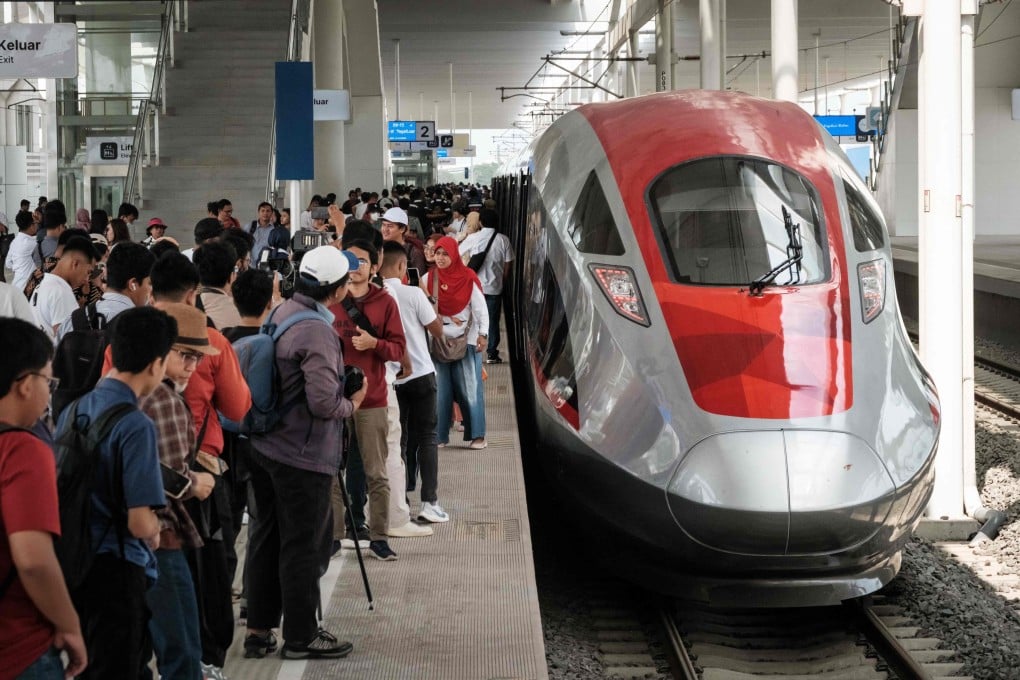Indonesia’s China-backed high-speed railway: a ‘burden to carry’ for years to come?
- After years of delays and budget blowouts, the US$7.2 billion Jakarta-Bandung high-speed train will be President Joko Widodo’s ‘costly legacy’
- But with repayments, interest and maintenance costs, the belt and road project is unlikely to be profitable ‘even after the next three presidents’

After years of delays and budget blowouts, the US$7.2 billion Jakarta-Bandung high-speed train – which connects the two cities 142km (88 miles) apart in under an hour at speeds of up to 350km/h – is set to open to the public with great fanfare on Sunday.
Pre-trials conducted by the authorities indicated strong interest from Indonesians, who caused website outages after swarming online to grab 500 free tickets per day from September 17-30.
The government had also invited a who’s who of guests, including celebrities and social media influencers, ahead of the launch to experience the new train line named Whoosh (waktu hemat, operasi optimal, sistem handal), which translates to “saving time, optimal operation, reliable system”.

Defence Minister Prabowo Subianto, a presidential hopeful in the 2024 election, described Whoosh as “extraordinary” after he took a ride with Widodo on September 19.